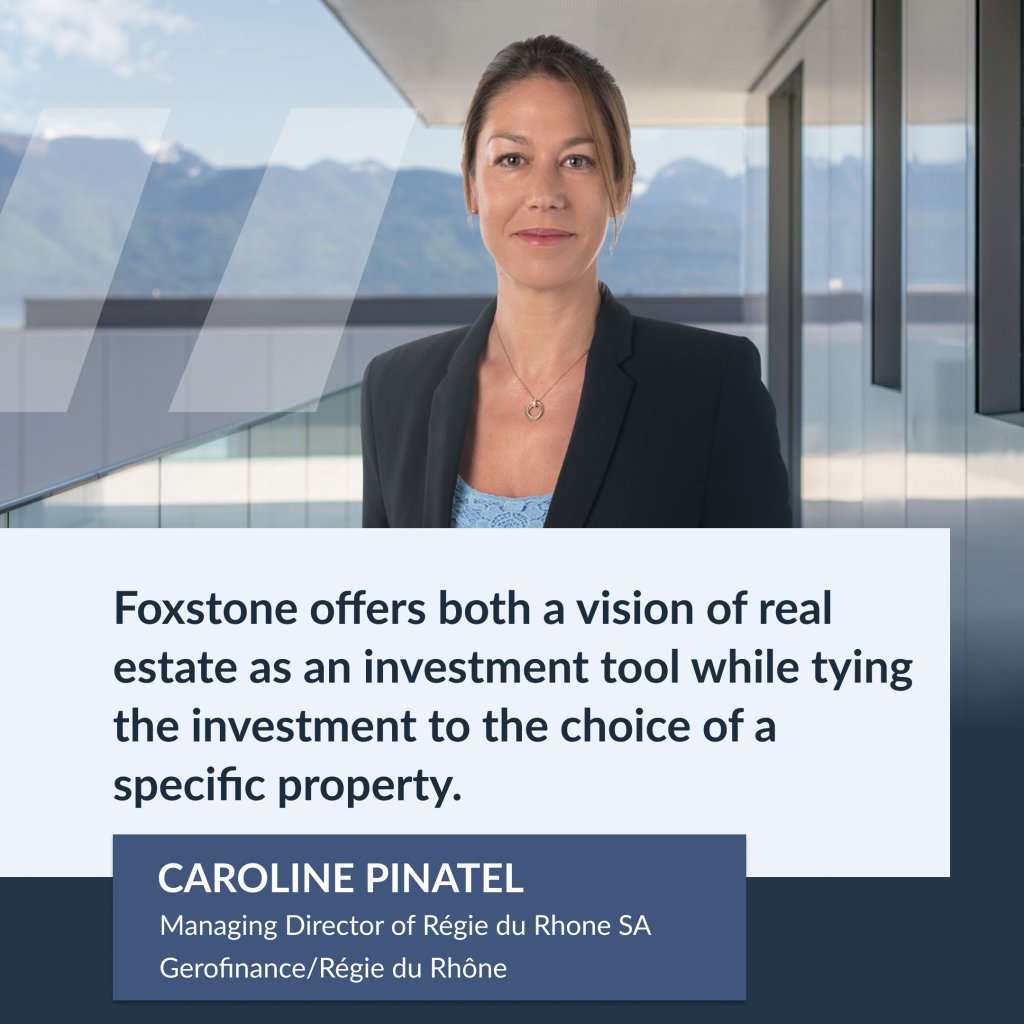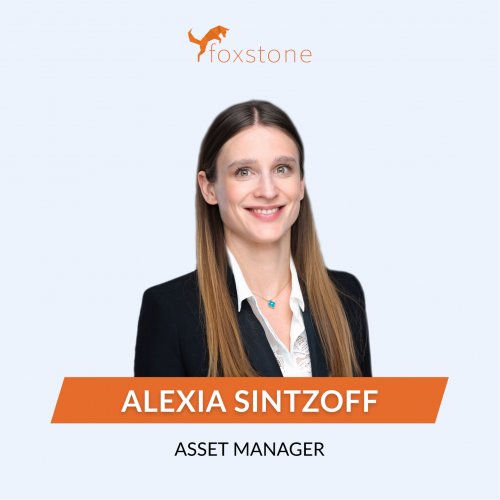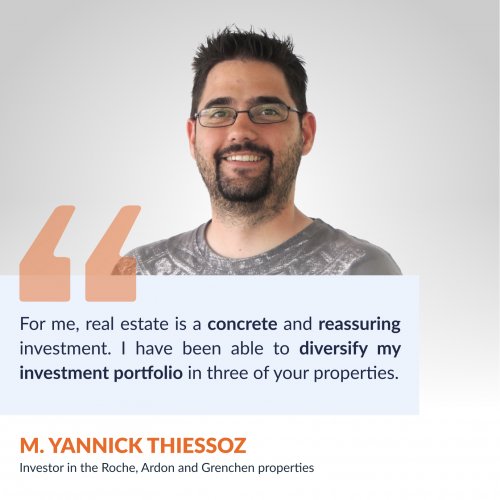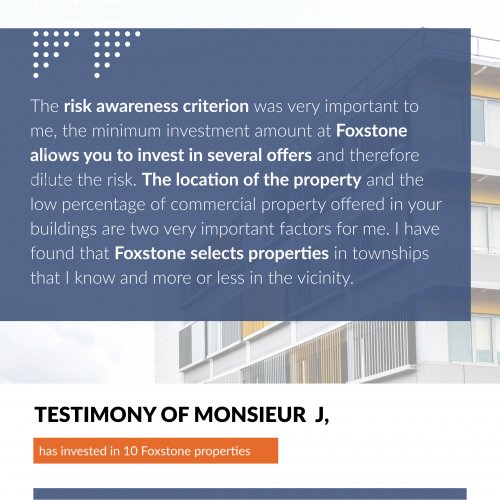Interview with Caroline Pinatel, General Manager of the Régie du Rhone SA within Gérofinance / Régie du Rhone

Could you briefly introduce yourself?
I am the General Manager of the Régie du Rhone SA within Gerofinance / Régie du Rhone. Passionate about my job for the past 15 years, I have been a Client Manager for Foxstone since the beginning of our collaboration.
Could you summarize your career path?
After studying law, I specialized in real estate at the IEI (Institute of Real Estate Studies). As soon as I graduated in 2005, I joined the Régie du Rhône SA, and I never left. I completed my training in 2013 with the higher diploma of real estate administrator. From the position of Executive Assistant in the Management Department to that of General Manager, I have had the opportunity to evolve with the Régie itself, which now forms the beautiful brand of Gérofinance / Régie du Rhône. Invested in training, I am in charge of teaching apprentices and employees at the APGCI as well as the Federal Certificate of Management at the SVIT School. I am also honored to be an active member of the APGCI and SVIT Romandie Committees.
What are you most passionate about in the real estate business?
For a hyperactive person like mine, the diversity of the subjects treated and the profiles met allow the passion to be renewed every day.
My job offers me both a general vision of real estate and the detailed management of a concrete property, while managing human relations in contact with our customers and employees.
What are the main challenges of the real estate manager occupation in the digital age? And the main opportunities?
The positive market situation for many years and the laws governing it have not encouraged the real estate world in general to be a forerunner in this area compared to other industries, it must be recognized.
Perspectives are changing and adapting to new needs and uses is essential, whether it is the way we approach the world of real estate with new ways of using premises or forms of investing in stone as Foxstone proposes, or whether it is a question of managing our relationships with our tenant and owner clients to offer them more transparency and services.
The challenge is to simplify processes and communication to achieve greater fluidity and proximity with our customers. We also have the opportunity to strengthen our control over data in order to be more effective in reporting and providing advice in increasingly specialized and diversified areas. In a low-margin business such as that of the Régisseur, digitizing basic tasks is essential in order to free up time for those with added value that require human resources, the most precious resource.
What is the outlook for the residential real estate market in Western Switzerland?
We have the opportunity to experience an attractive and stable market, even if in certain regions we are more vigilant about the risk of vacancy. Beyond the uncertainties linked to the financial world, we are confronted with those generated by the health crisis, the consequences of which it would be premature to measure. We will have to follow the aspirations of our tenants to move away from the centers to have more space, a movement favored by telecommuting.
We need to keep an eye on all these signs that will change demand in the short term and supply in the medium term. We are also seeing tenants move more easily and we have seen many new construction. Landlords need to ensure that their properties are well maintained and well equipped for tenants to remain attractive. It will also be important to monitor the energy measures that are expected to drive the market in terms of the investment needed by owners and the impact on rents.
How do you collaborate with Foxstone?
I had the opportunity to exchange with Foxstone from its inception and to collaborate in the implementation of the management with the Régie from the time of the acquisition of the first building. We participated in the discussions, whether it was about the form of the mandate, the leases or the accounting practices adapted to the multiplicity of owners. As Foxstone’s Client Manager within the Régie, I supervise the Group in charge of day-to-day management and am the referent for management strategy. On a day-to-day basis, we handle relations with tenants and ensure the technical management of the buildings. We submit proposals, exchange ideas and obtain quick decisions. The common goal is to deliver a proactive and dynamic management in the interest of the end customers.
Our collaboration is very rewarding because it is agile. We adapt our collaboration according to Foxstone’s constant evolution, needs and exchange of experience. We use our experience in the light of an innovative vision on how to proceed (as for the digital assemblies).
How does Foxstone differentiate its management from a traditional landlord ?
Foxstone combines the characteristics of different categories of owners while being unique: the attachment of the private owner attentive to the particularities of his property with the professional view of the institutional owner on his real estate pooling skills.
Indeed, Foxstone has the same requirements as a private owner who is interested in the details of the management in order to have a precise and controlled follow-up, while respecting, as an institutional owner, rules of control and reporting, necessary to be able to give reliable information to the co-owners in participative investment and to answer the objectives agreed at the time of the acquisition of a building. Foxstone, as an Asset Manager, assumes its role of responsibility for others, and this for each of the buildings in an adapted and differentiated way.
Foxtsone offers both a vision of real estate as an investment tool while linking the investment to the choice of a specific property.
What do you think of the digital general assembly system developed by Foxstone?
Prior to the health crisis, Foxstone implemented this completely paperless system while complying with the legal requirements for the organization of such meetings. The tool is very easy to use and offers a lot of transparency. It allows each investor to be informed and to vote where and when he wants. The investor does not lose the possibility to interact, to ask questions and to receive the expected answers. An obvious advantage in a health context where public meetings have been compromised!
Many thanks to Caroline Pinatel for agreeing to answer our questions.
For more information : Gérofinance / Régie du Rhône



